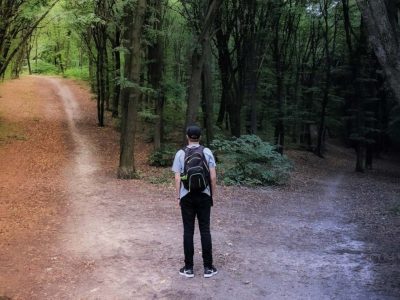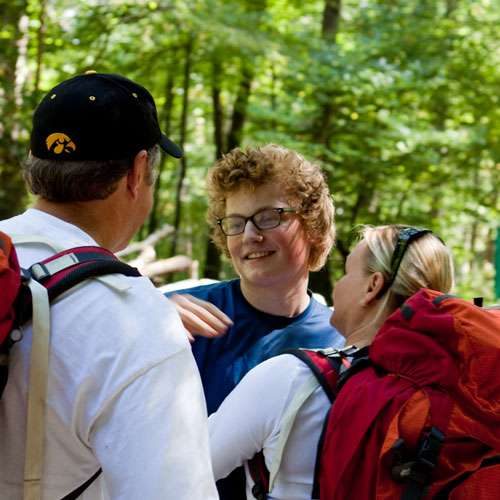Many parents are concerned that spending too much time online may take away from the time their kids spend learning in more conventional ways, through reading and face-to-face interactions. Recent research confirms that the internet actually affects our brain’s learning networks. Our brains are conditioned to be attracted to the instant gratification technology delivers. While the internet can be a great tool for learning, researchers have found that frequent use is associated with minor changes in our attention capacities and memory processes. Although we have begun to explore how our reward networks reinforce internet addiction in teens and adults, these findings encourage us to consider how we use our time online.
Multitasking
We often justify the amount of time we spend online because we are being fed so much information at once. It’s not uncommon to walk in on your teenager listening to music, watching videos, and claiming to be writing their final papers all at once. We believe music helps us concentrate. Hearing ourselves type helps us focus more. If we were to only focus on one thing, we’d get bored more easily and not get as much done at once. “The key findings of this report are that high-levels of Internet use could indeed impact on many functions of the brain. For example, the limitless stream of prompts and notifications from the Internet encourages us towards constantly holding a divided attention — which then in turn may decrease our capacity for maintaining concentration on a single task,” said Dr Firth.
Information Processing
Although we have more access to multiple sources of information within our fingertips, we spend so much time with multiple tabs open, that we end up skimming everything or searching for keywords instead of taking the time to understand what we are reading. While we may be able to do more things at once, our ability to do each thing properly is limited by the fact that we are trying to kill two, three, or even four birds with the same stone.
How to Use Technology more Mindfully
The researchers acknowledge that most studies conducted on internet addiction have been done with adults, rather than teens with developing brains who are more dependent on the internet for their social lives and have not grown up knowing any differently.
- Monitor the time they spend online. The World Health Organization suggests less than an hour of recreational screen time for teens a day. While taking away your child’s devices can feel punitive, there are apps and software programs available that monitor time spent online and the kind of content they are exposed to. Role modeling utilitarian ways of using technology or using technology together can help foster healthier relationships with the internet.
- Talk about how their online lives affect them. Acknowledge both pros and cons. Talk to them as much about entertainment and news as you do about risks of cyberbullying and exploitation. Encourage them to use privacy settings and to censor how much information they give out line.
- Encourage them to spend more with people time face-to-face. Invite their friends over. Eat meals together. Encourage them to participate in extracurricular activities they’re passionate about. The internet, particularly social media, helps teens stay connected to the social world, but it doesn’t compare to quality time.
- Get outdoors. Teens learn more from experience than from anything they’re told or read about. Spending more time outside the house, in nature or elsewhere, helps them to foster real-life connection and curiosity.
How Trails Carolina Can Help
Trails Carolina is a wilderness therapy program that helps teens ages 10-17 who are struggling with mental health issues and process addictions, including internet addiction. This program uses adventure-based therapy to help students gain a new sense of self-awareness, confidence, and independence. We encourage kids to unplug and reconnect with their natural environment and inner spark. The skills they learn throughout the wilderness program offer long-term benefits towards their ability to successfully self-navigate in the real world.
For more information about how wilderness therapy can help teens struggling with internet addiction, call 800-975-7303. We can help your family today!
Get started today
Contact us today to learn how Trails Carolina can help your family
Trails saved my daughter’s life. Amanda is an amazing human and a brilliant therapist. I am so grateful to her, Science Steve, and the other wonderful people who could reach my daughter at a time when I could not.
Margot Lowman August 2022
Great life changing experience for our son. After becoming addicted to gaming during covid he was very depressed. At Trails he experienced the wilderness, Science Steve, learning survival skills and top notch therapy and support etc… I highly recommend! This gave our son and our family a renewed family bond full of love and excitement about his bright future.
Winnifred Wilson July 2022
Outstanding clinical work and superb staff! There’s a great culture at this company and it shows with how they engage with families/clients.
Kristin Brace June 2022
Discover If Trails Is The Right Program For Your Child
Take our short online assessment and help us better understand how we can help your family.




